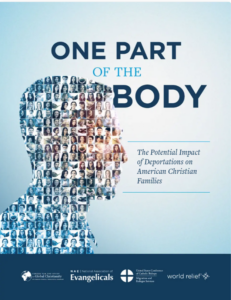
WAKE FOREST, N.C. (BP)–Pastor and former professor Danny Forshee exhorted the future ministers, missionaries and church leaders studying at Southeastern Baptist Theological Seminary Oct. 1 to “not take the call of God lightly.”
“When [God] asks you to do something, he doesn’t need your rationalization, he doesn’t need your justification, he doesn’t need your theological acumen,” Forshee said. “He just needs your obedience.”
Forshee, a former evangelism professor at Southeastern and now pastor of Liberty Baptist Church in Hampton, Va., was at the Wake Forest, N.C., seminary for Sandy Creek Revival Week, a yearly revival meeting at the school commemorating one of the greatest spiritual awakening movements in American history. That 19th century revival began at nearby Sandy Creek Baptist Church.
In launching the week, Forshee spoke from 1 Samuel 16 in a message about how God’s choices are often puzzling to humans, who cannot comprehend why God chooses inconspicuous and anonymous people for his work.
“Does that ever stagger your mind?” he asked the assembly. “Do you ever stop and wonder, and say, ‘God, why do you do that? Why do you take the lowly and small and the humble and why do you fill them with your Holy Spirit and anoint them and use them to do great and mighty things?'”
The anointing of David as king of Israel paints a picture of how effectively God uses the “weak things of the world” to break the strong, Forshee said.
The practical application, he added, is that men and women of God — particularly those who are singled out by God for fulltime Christian service — must remain humble and awed by God to remain useful.
Contrasting David and Saul, the man David succeeded as king, Forshee said: “Saul was a somebody who became a nobody. David was a nobody who became an awesome somebody for God.”
Before God singled out the young, inauspicious shepherd David, he called Saul to be Israel’s king, Forshee said. But Saul lost that anointing, and Forshee cautioned students not to fall into the same trap of pride and disobedience that Saul did.
“Through a series of bad decisions, poor choices and blatant sin, God took his hand off Saul and he placed it on somebody else,” Forshee said.
When it came time to anoint a new king, Forshee pointed out, even Samuel the prophet was taken aback at God’s choice. As God passed over David’s older brothers — all no doubt bigger and stronger than he, Forshee said — the one whose heart was true was chosen.
Similarly, Forshee reminded the students that though they may have the intellectual capability to excel at worldly pursuits, and even theological study, it all comes to nothing if not led by a heart for God.
“God will not endow you with greatness to be used of him until you humble yourself and say, ‘God, you take this great mind and you use it for your glory. Lord, help me use it in soul-winning and being an on-fire man for you,'” Forshee said. “A great mind is a good thing, but so is a great heart.”
God chose David, Forshee said, not because he had worldly qualifications but because he was inconspicuous, humble and loyal — the same traits God looks for in the men or women he chooses today.
“God uses the weak to break the strong, so that no flesh should glory in his presence,” Forshee said.
–30–














